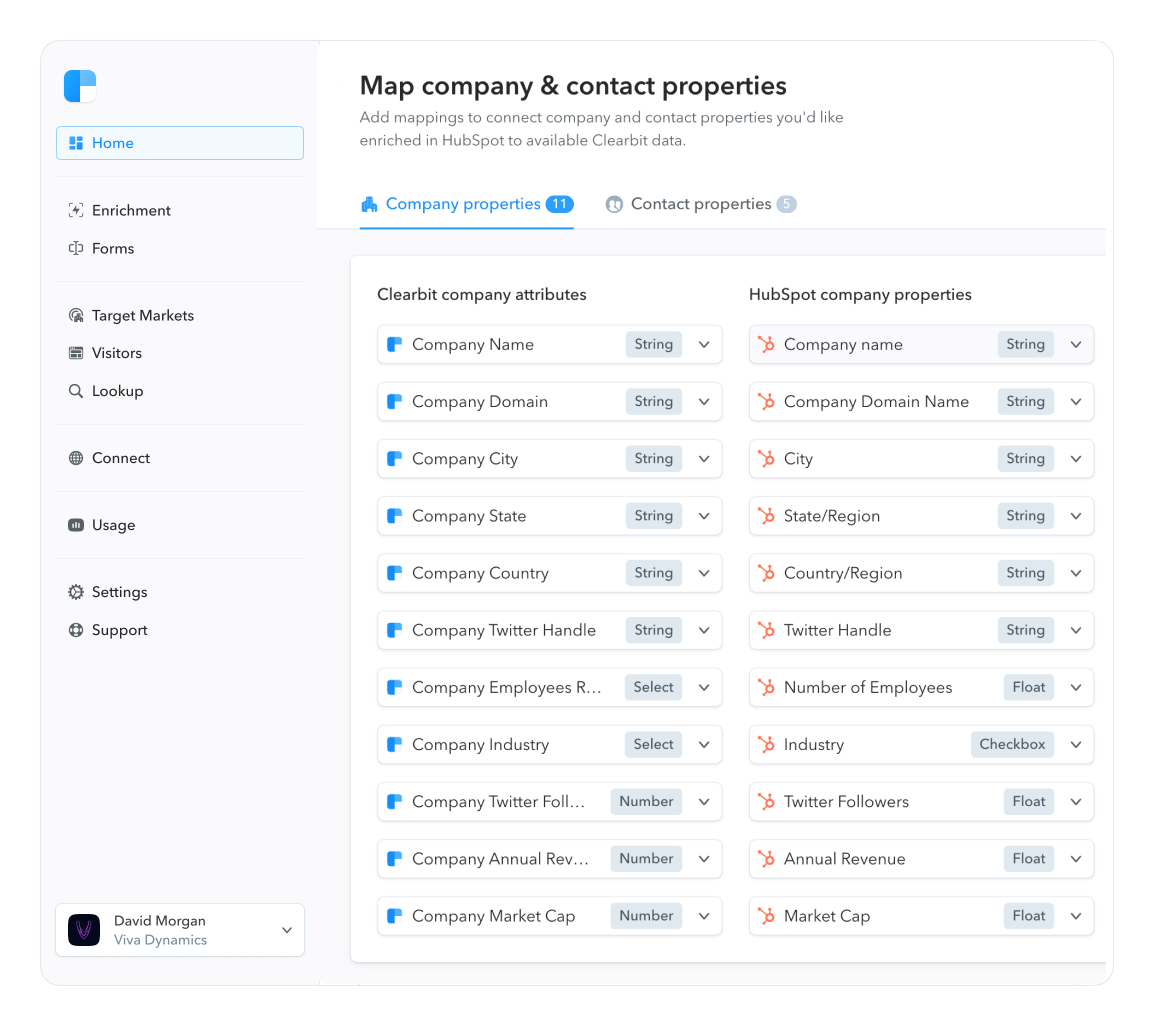The definitive guide to IP based B2B website personalization
Website personalization for B2B buyers is a highly effective way to improve conversion rates, sales leads, content consumption, and more. But it’s tough to personalize for the 98% of B2B website traffic that’s anonymous. Clearbit Reveal lets you see who’s coming to your website and gives you rich firmographic data on which to base your segmentation and personalization.
Let’s take a look at how this works in the real world and see how B2B companies Tealium, Optimizely, and BMI Research use website visitor IP addresses to understand their audiences and personalize for them.
Great personalization starts with analytics
To personalize your website, you need to be aware of the distinctions between different audience groups. You may already have hypotheses about target verticals and customer segments, but you should look at your current website traffic to verify those hypotheses and/or find new groups you weren’t aware of.
The first step is to de-anonymize website traffic in an analytics platform like Google Analytics. Clearbit Reveal takes the IP address of a visitor and identifies the company it comes from. Then, Clearbit fills in the company’s firmographic details, collating more than 100 verified data points from 250 public and private sources—data that includes company industry, number of employees, location, what technologies they use, and much more.
The Clearbit data is visible in Google Analytics or in your own analytics software, so you can organize your audience into groups and see what pages they’re looking at. Search for the best attributes to personalize for and start testing them.
On your site you can personalize your website copy, imagery, calls-to-action, related reading, chat widgets, and sales outreach protocol. For example:
- Offer a sales call for companies with more than 250 employees and a self-serve option for smaller companies.
- Highlight case studies specific to a visitor’s industry.
- Reference your compatibility with software they already use. (If they use Zendesk, for example, highlight your Zendesk integration.)
- Display info about events in the visitor’s city.
- Greet the visitor using their company’s name on the homepage.
Let’s see how three successful companies have captured anonymous web traffic and enriched company data to personalize their website experience.
Tealium personalizes their website copy for visitors from different industries
At Tealium, Digital Program Manager Elena Hill’s mission is to talk to her prospective customers as people. The Tealium website, which is often the first touchpoint in the sales process, should appeal to visitors from different target industries rather than trying to speak to everyone with a single, static message.
Like most B2B SaaS companies, many visitors hit Tealium’s website anonymously, so Elena set up Clearbit Reveal to help detect the visitor’s company based on their IP address. It then enriches Tealium’s existing customer profiles, which they create and manage through their customer data platform, Tealium AudienceStream, adding data like company industry and location.
They use this to personalize the hero messaging on the homepage and more. It happens in the blink of an eye: as the visitor hits the homepage, Clearbit’s industry tags assign them to a specific audience segment, and the Tealium website shows relevant industry messaging.
Visitors from e-commerce companies, for example, see a homepage geared toward retail marketers.
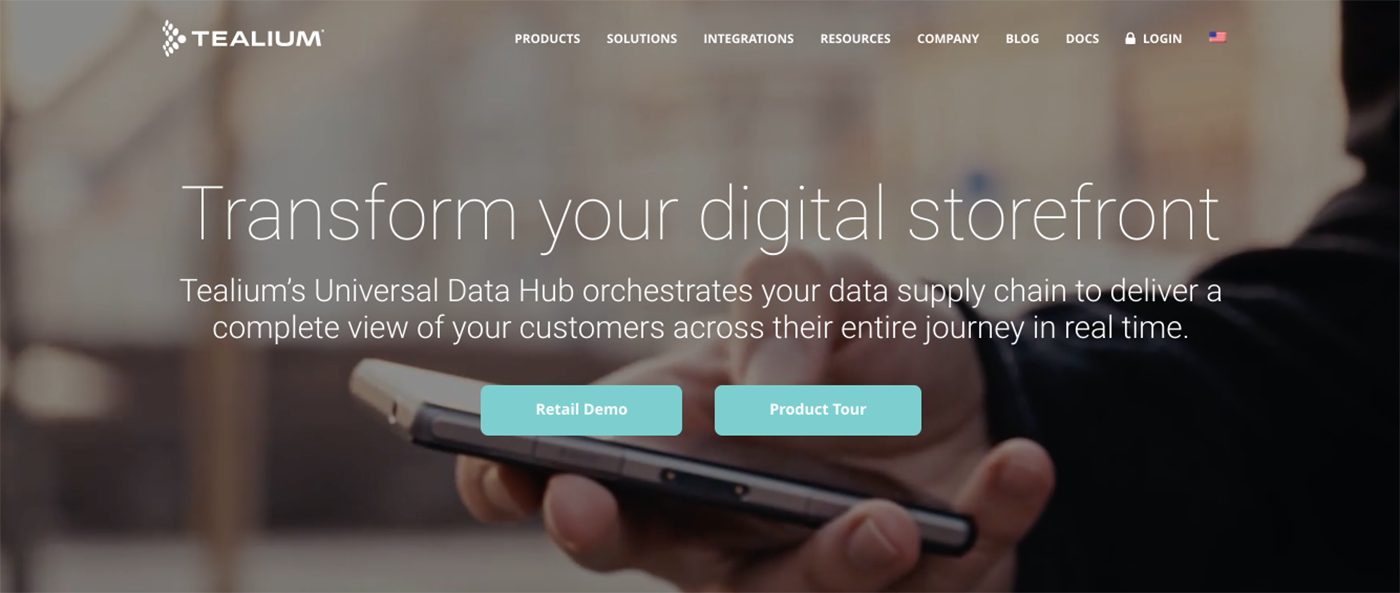
Meanwhile, finance industry visitors get a different CTA and value prop copy.
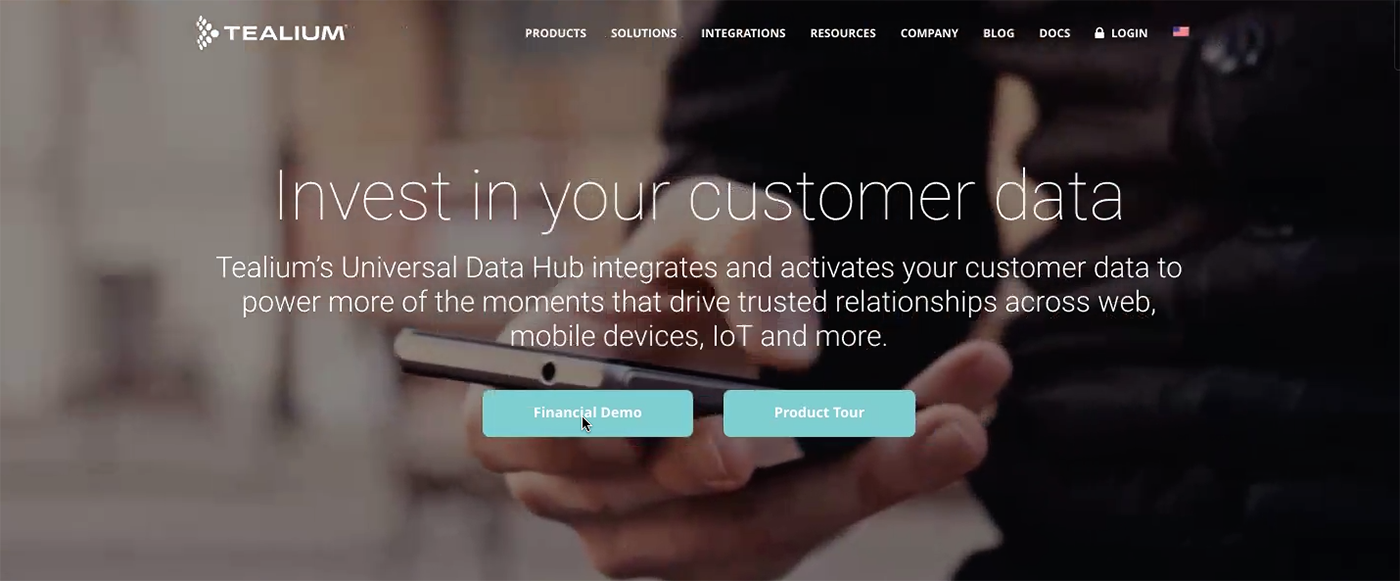
If the visitor clicks to request a demo, they’ll see a landing page with copy about their industry-specific pain points.
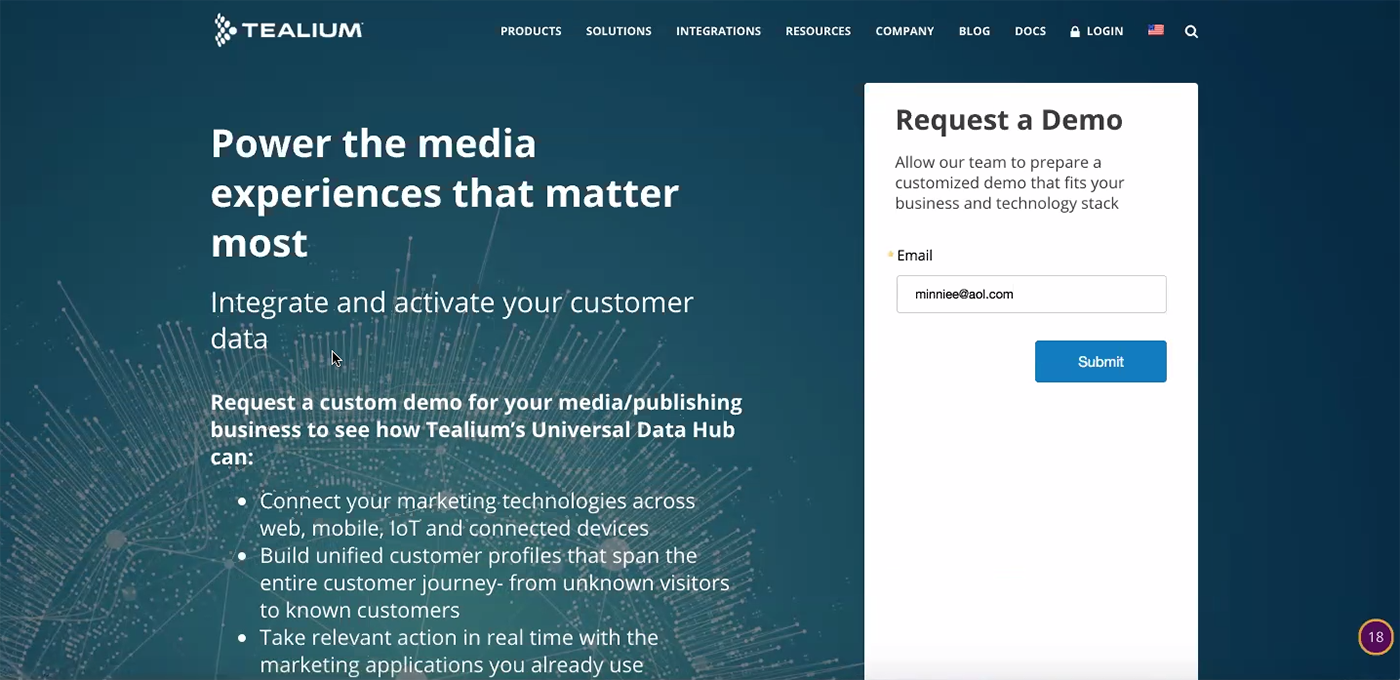
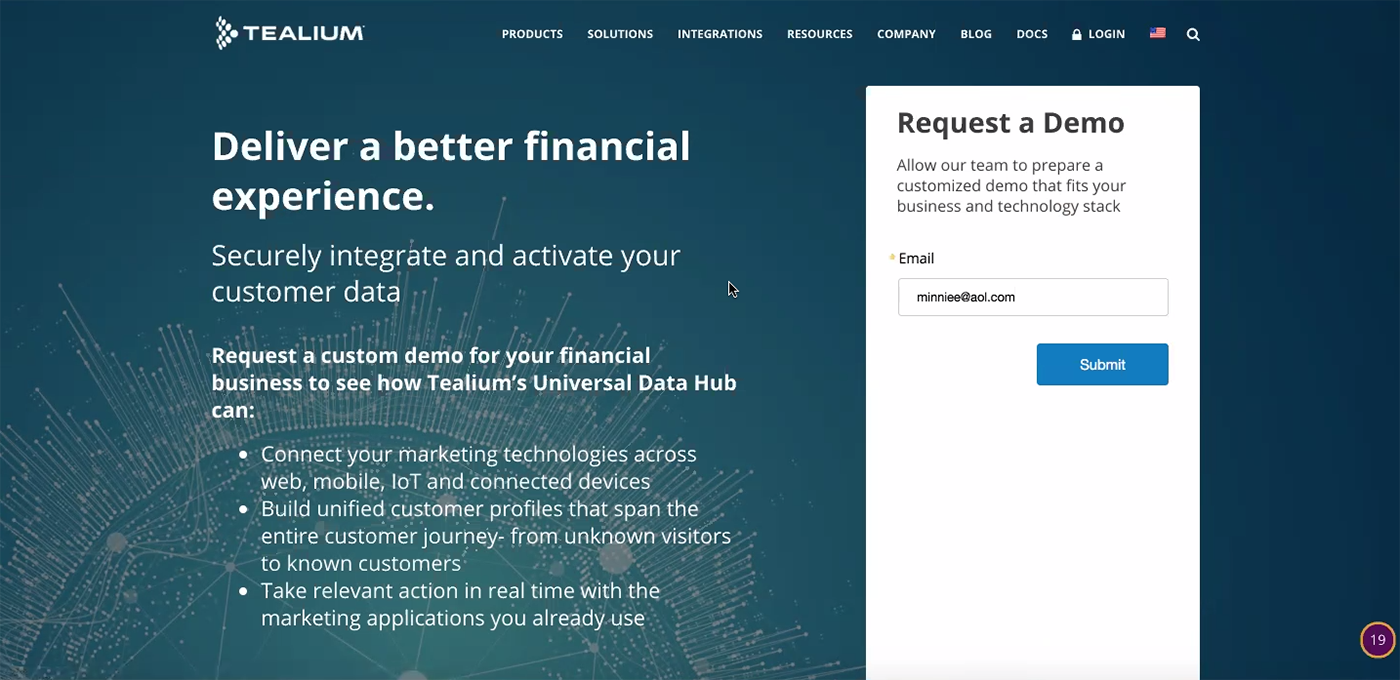
Tealium can also use location data to highlight an upcoming event in a nearby city. It’s all about distilling the information that’s most likely to be useful to your visitors as individuals.
“Your customers are talking to you, so don’t treat them like a pixel or an impression,” says Elena. “Respecting people and how they want to be treated will always prevail.”
Optimizely says, “Hello, Target!”
What if you have an important target account, and you want to set up a unique website experience for that account only?
That’s exactly what Optimizely did. In a popular personalization campaign, they created 26 different versions of their website for prospective companies and current customers like Adidas, Microsoft, and Target.
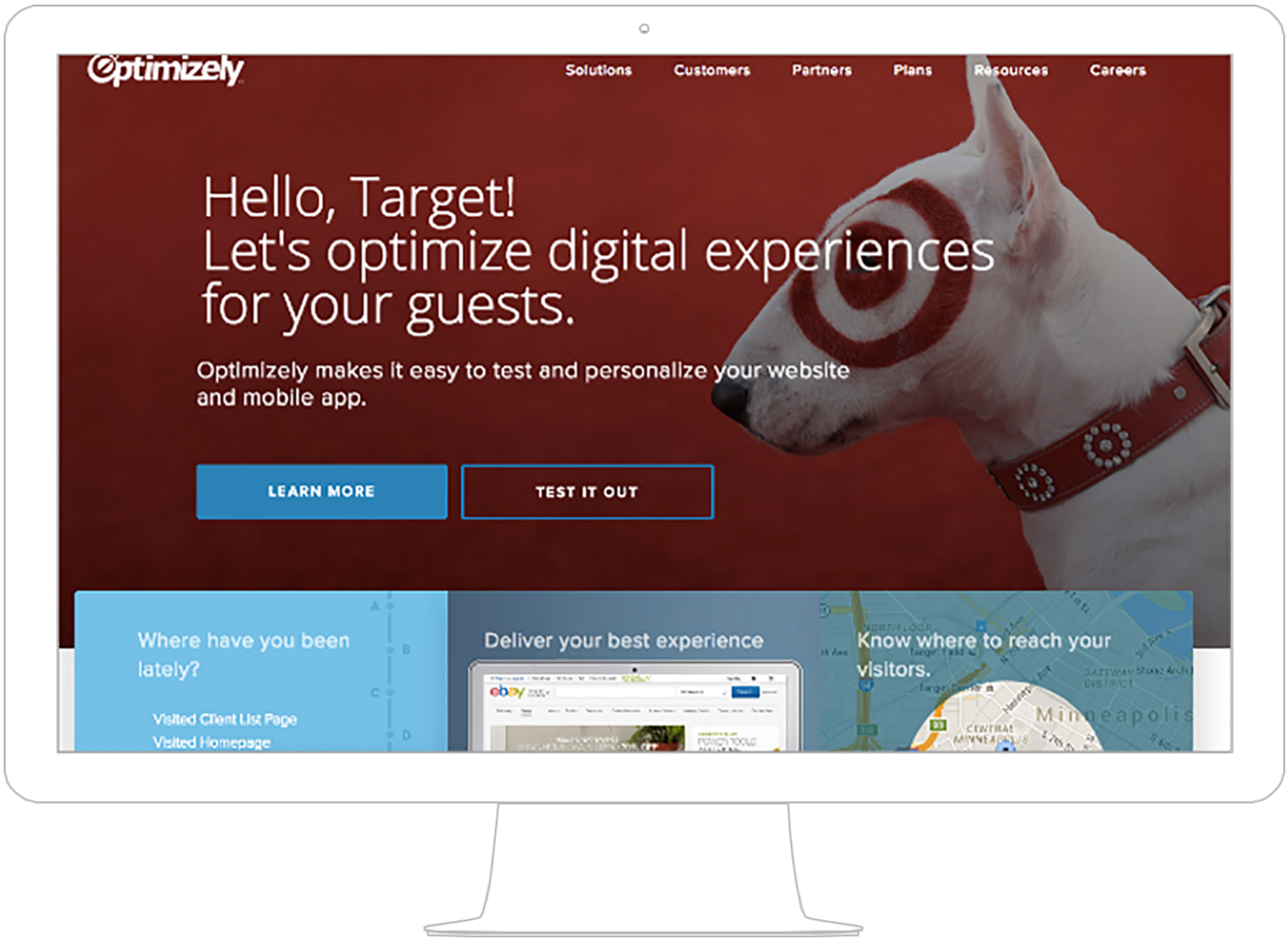
The homepage became highly personalized if someone from a target company visited. It greeted them directly, showed the visitor’s location, their past activity on Optimizely.com, and the photo, name, and contact information of their account manager. It’s similar to the persuasive, personalized content that’s used by B2C companies in the consumer marketplace—think of Amazon’s purchase recommendations and viewing history.
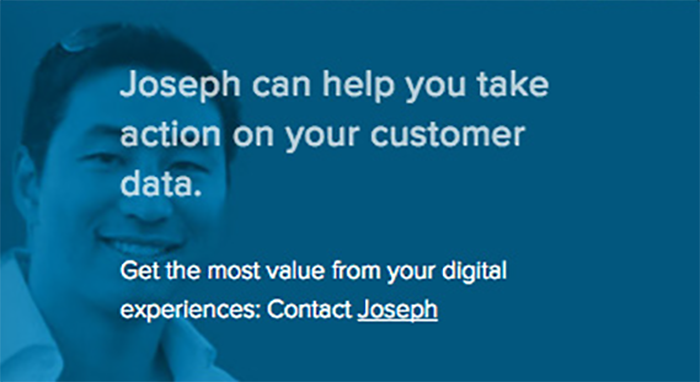
Optimizely’s results included a 113% increase in conversions to the Solutions page, and a 117% increase in conversions for the account creation process (their “Test it Out” call-to-action). They also got positive feedback for the personal touch.
BMI Research recommends relevant content
BMI Research produces articles, research reports, and whitepapers covering 20 industries in 200 countries. If you want to buy a specific paper, that’s a lot of content to sort through when you visit their website—especially when their coverage is as specific as “Agribusiness in Bahrain.”
CMO/CTO Jon Ewing knew that a little personalization would help visitors find what they were looking for faster.
BMI Research began detecting the industry of anonymous website visitors and used a tool called idio to showcase relevant articles and reports. This content personalization, along with industry-specific homepage copy and images, resulted in a 25% increase in conversion and a massive spike in leads.
Jon says, “Suddenly, on your first-ever visit to the site, we could show you something that would resonate with you. That was the holy grail and it actually worked. This is a huge competitive advantage for us.”
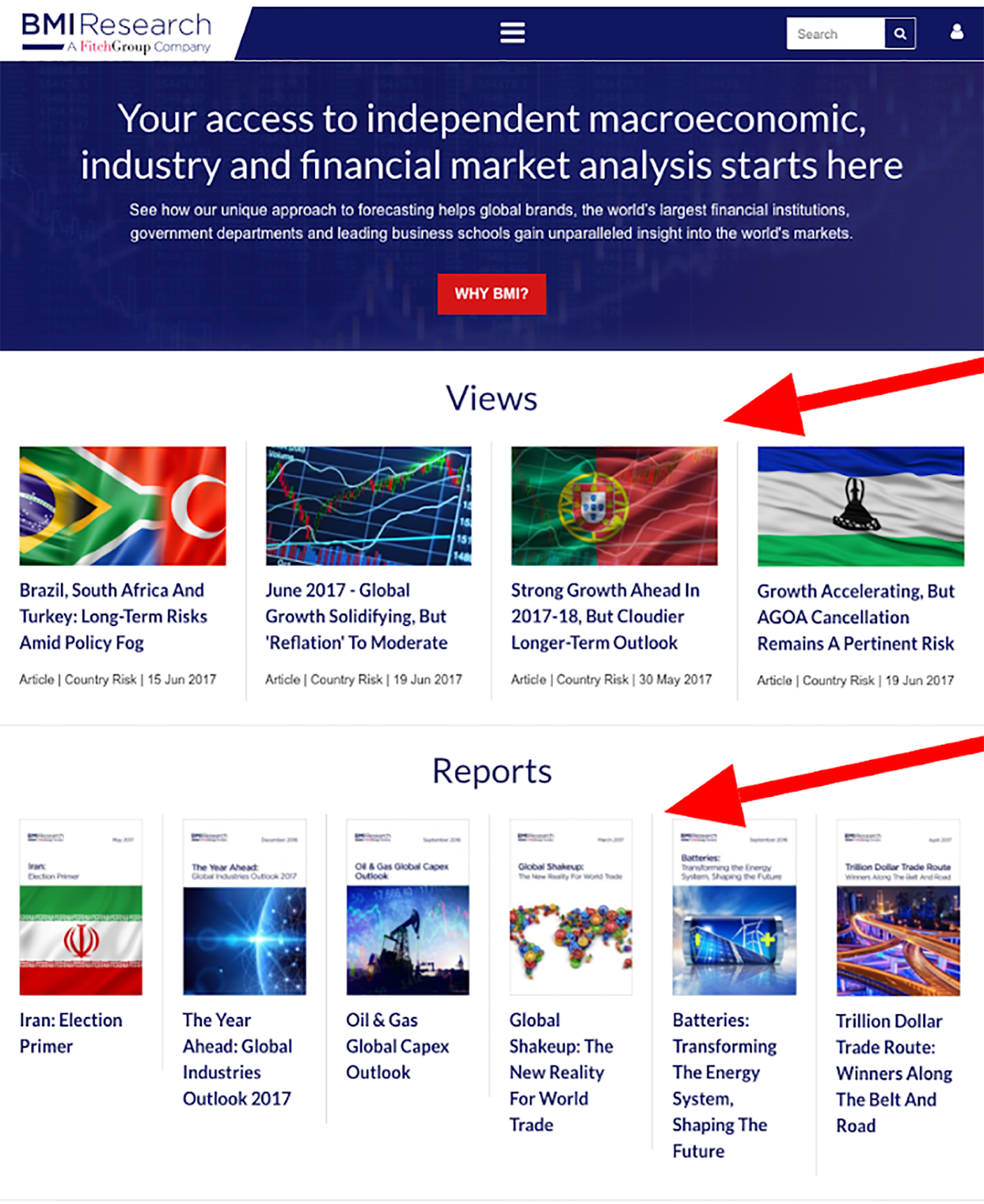

When you speak the same language as your customer, you help them solve their problems quickly. For B2B SaaS companies, website personalization is becoming the cornerstone of a great user experience, and data has never been more available to make it a reality.
Tealium, Optimizely and BMI Research know this, and so do the giant consumer-facing retailers who provide all of us with such a rich online environment. B2B companies are catching up. Follow their lead and humanize your customers’ experience. When you treat them like people, the results speak for themselves.

